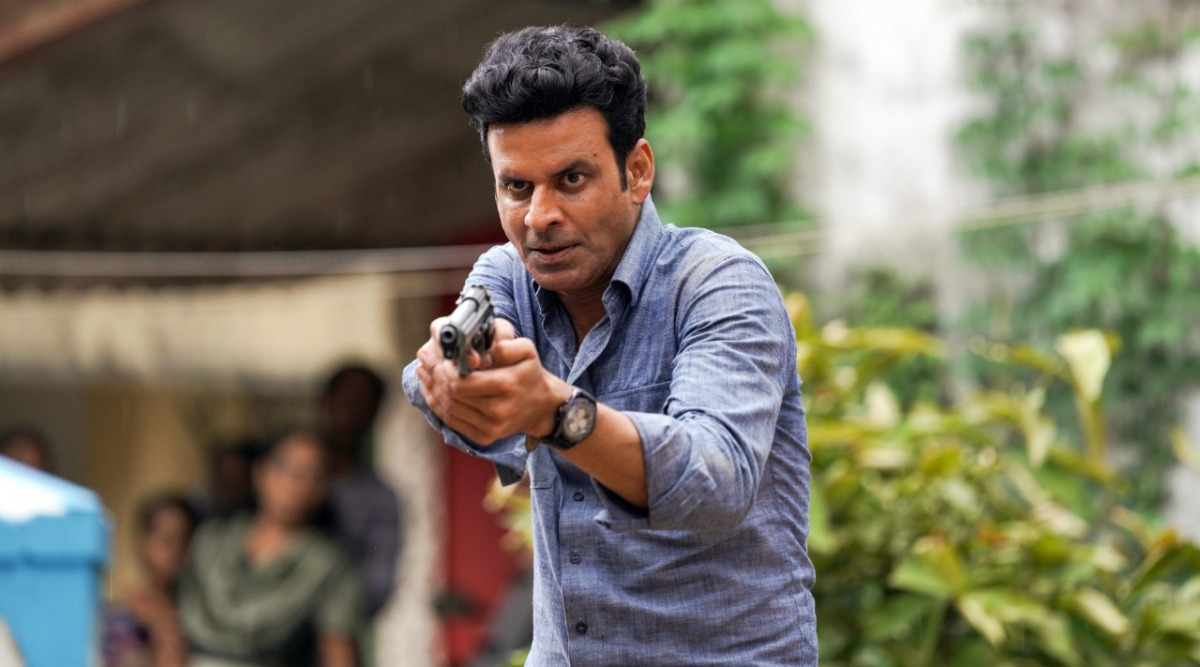 Manoj Bajpayee outdoes his performance as a secret agent in the same month with Ray's Hungama Hai Kyon Barpa.
Manoj Bajpayee outdoes his performance as a secret agent in the same month with Ray's Hungama Hai Kyon Barpa. We live at a time when films and TV shows — across languages, across platforms — are vying for our attention. In this new column to be published on the first of every month, I will single out The Best, The Worst and The Most Unexpected across Indian film and television in the month gone by. Consider it a report card. We begin with June, which began and ended with one actor.
The Best
The Family Man (Amazon Prime Video)
It broke the subtitle barrier. Season 2 of The Family Man delivered action so riveting that it compelled a Hindi viewing audience to watch a series where half the conversations took place in Tamil. That’s never happened before. The series created by Raj Nidimoru and Krishna DK stars Manoj Bajpayee — his brow heavy with an eternal “what now?” weariness — as a secret agent perpetually struggling with work/life balance. The ensemble is great, the show is an immediately bingeworthy ride, and its action sequences — staged in long, unbroken takes — set an impressive new benchmark. This is masala done right.
Spotlight (Netflix)
In the year of Satyajit Ray’s birth centenary, Netflix gave us an anthology series called Ray, where filmmakers adapted a handful of the master’s short stories. Vasan Bala took a simple, well-observed story about the fickleness of fame and faith and turned it into a zany riff on the nature of fandom, with movies and religions both needing bhakts. Bala’s Spotlight is a self-reflexive trip that speaks in movie quotes and skewers its own star, certainly, but pays even truer tribute by pointing out where the pretender goddess from Ray’s Devi might have ended up today. This is literally a cult film.
The Worst
Sunflower (ZEE5)
A tender coconut delivered to a man’s doorstep is poisoned by a neighbour. This leads to a murder mystery set around the many residents of a housing society. The idea is promising, but this overwritten, over-long series — created by Vikas Bahl — is a noisy, torturous bore populated by shrill caricatures and dogged by bad jokes that need laugh-tracks. Anything but tender.
The Family Man (Amazon Prime Video)
 Darshan Kumaar reprised his role of Major Sameer, the antagonist in The Family Man. (Photo: Darshan Kumaar/Instagram)
Darshan Kumaar reprised his role of Major Sameer, the antagonist in The Family Man. (Photo: Darshan Kumaar/Instagram)
I know, I know. The Family Man heads the Best column, but it needs mention here as well. After a progressive first season, the show smelt a bit Islamophobic this year — with most Muslim characters turned into exaggeratedly evil villains, and an irresponsible ‘love jihad’ equation. It also drew criticism for depicting the Eelam movement in a harshly one-sided manner, and for casting the talented Samantha Akkineni as a Sri Lankan rebel and darkening her face (with distracting inconsistency) for the part.
The ones that could have been better
Kartik Subbaraj’s Jagame Thandhiram (Netflix) not only trivialised the issues of xenophobia it attempted to address, but criminally used up Dhanush — an actor who seems more explosive with each film — in something eminently forgettable.
Amit Masurkar’s Sherni (Amazon Prime Video) wears the nobility of its pro-wildlife causes too self-importantly on its sleeve. The film about a man-eating tiger is slow and measured, yet paints characters it doesn’t like — a hunter, a husband — with jarringly broad strokes, while its efficient heroine learns nothing and achieves little. Drabness does not make for insight.
The Most Unexpected
I would never have imagined Manoj Bajpayee would outdo his Family Man performance — hailed by many as the best in his career — in the same damned month.
Abhishek Chaubey’s Hungama Hai Kyon Barpa (part of Netflix’s Ray anthology) handles a clever short story with silken gloves. Staying true to the material, it filigrees the humour with magic, and with that most magical sounding of languages, Urdu. Bajpayee and Gajraj Rao are superb as two men meeting on a train at two different stages of life’s journey, and Chaubey lets them wrestle on and on, much to the viewer’s delight. This is a work of admirable craftsmanship, like the mystical timepiece at the story’s heart, not only delivering a great time but transporting us to a lovelier one.
Bajpayee’s performance is as finely tuned as the voice of a seasoned ghazal singer. His body language and eyes take centrestage as he struggles to come to grips with both the man in front of him, and the man in the mirror. Fame has changed him and he is glad of it, and so he performs the flourishes of a famous man, an important man, with theatricality. Fear, on the other hand, beats fame, and makes him revert to the man he was, shifty and nervous and unimpressive.
The smugness with which Bajpayee delivers an Urdu line, convinced of its greatness and his own, is something special, as is his breathless panic at the thought of comeuppance. In a film relying on magic realism, he provides both. Wah, ustaad!
(Raja Sen is a critic, author and screenwriter, currently working on a film he isn’t allowed to talk about.)
- The Indian Express website has been rated GREEN for its credibility and trustworthiness by Newsguard, a global service that rates news sources for their journalistic standards.

